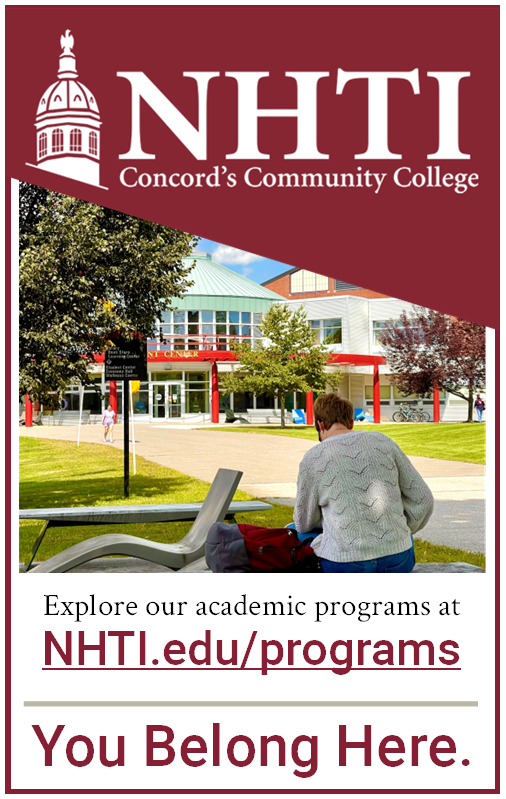|
Concord – What’s happening with the birds this winter? Help NH Audubon track our bird populations by taking part in the annual Backyard Winter Bird Survey on Saturday, February 8, and Sunday, February 9. Biologists need assistance from citizens all over the Granite State to get a clear picture of what is happening with our winter birds.
It took the arrival of snow this winter to bring birds into our backyards, after ignoring feeders in the fall thanks to a good natural food crop. The cold November chased some late lingering birds away but it wasn’t until snowfall that many people started reporting their birds were back. NH Audubon biologists are anxious to see what this year’s numbers show and they need your help to get data from throughout the state. “With the recent report on bird declines, it’s critical to track what’s happening to our common backyard birds,” said Dr. Pam Hunt, Senior Biologist with NH Audubon. Last year Blue Jays were at record low numbers on the 2019 Survey but they are expected back this year. “Acorns are a staple in Blue Jay diets, so much so that these birds are actually migratory,” according to Dr. Hunt. Last winter there were hardly any acorns so the Blue Jays left the state. This fall the acorn crop was good and Blue Jay numbers are expected to rebound. NH Audubon is also closely watching Black-capped Chickadees. This popular backyard bird was at a record low in 2018 and bounced back a little in 2019 but are still of concern. “We want to keep any eye on them,” said Dr. Hunt. Unlike the Blue Jays, there’s no obvious reason for their decline, but 30 plus years of data from the Survey shows a lot of variation in their population. The return of Evening Grosbeaks was a welcome sight last winter. They reached their highest total on the Survey since 2008. This beautiful bird used to be quite common in the late 1980s and early 1990s but they have been largely absent from feeders for the last decade. The 2019 Survey also had the second highest total of Barred Owls. The story of their increase is linked all the way back to the bumper mast crop in the fall of 2017. “The Survey shows us how natural phenomenon influence the ups and downs of bird populations,” says Rebecca Suomala, Survey Coordinator. The 2019 Survey Summary (available online) explains the connection. NH Audubon needs your help to track the chickadees and other feeder birds. Anyone can participate in the Backyard Winter Bird Survey by counting the birds in their own backyard on the survey weekend and reporting online or sending the results on a special reporting form to NH Audubon. To receive a copy of the reporting form and complete instructions, e-mail your name and address to bwbs@nhaudubon.org or call 603-224-9909. Forms are also available on-line and at NH Audubon centers in Auburn and Concord. Find more information about the survey at www.nhaudubon.org under Get Outside-Birding. Each year about 1,500 observers across the state count the birds coming to their feeders. Reports of a lack of birds are just as valuable as reports of many birds. “If everyone reported only when they have a lot of birds, we wouldn’t be able to see the declines,” says Suomala. The most important thing is to participate each year regardless of how many or how few birds you have. Data from the Backyard Winter Bird Survey help biologists track changes in the distribution and abundance of our feeder birds. All New Hampshire residents are encouraged to take part. Results from past years are on the web site. For more information about the Backyard Winter Bird Survey, please call NH Audubon at 224-9909 or go to the web site at www.nhaudubon.org and click on Birding. About NH Audubon NH Audubon is a nonprofit statewide membership organization dedicated to the protection of New Hampshire’s natural environment for wildlife and for people. Independent of the National Audubon Society, NH Audubon has offered programs in wildlife conservation, land protection, environmental policy, and environmental education since 1914. Expert educators give programs to children, families, and adults in schools and at four nature centers throughout the state. Staff biologists and volunteers conduct bird conservation efforts such as the Peregrine Falcon restoration. NH Audubon protects thousands of acres of wildlife habitat and is a voice for sound public policy on environmental issues. For information on NH Audubon, including membership, volunteering, programs, sanctuaries, and publications, call 224-9909, or visit www.nhaudubon.org. Comments are closed.
|
Breaking NewsCategories
All
Archives
March 2024
|
603.568.0428






 RSS Feed
RSS Feed